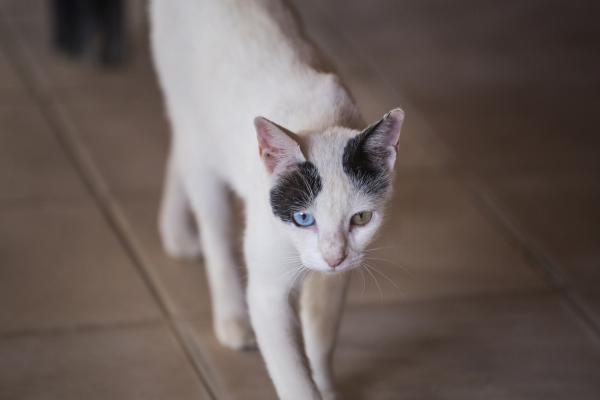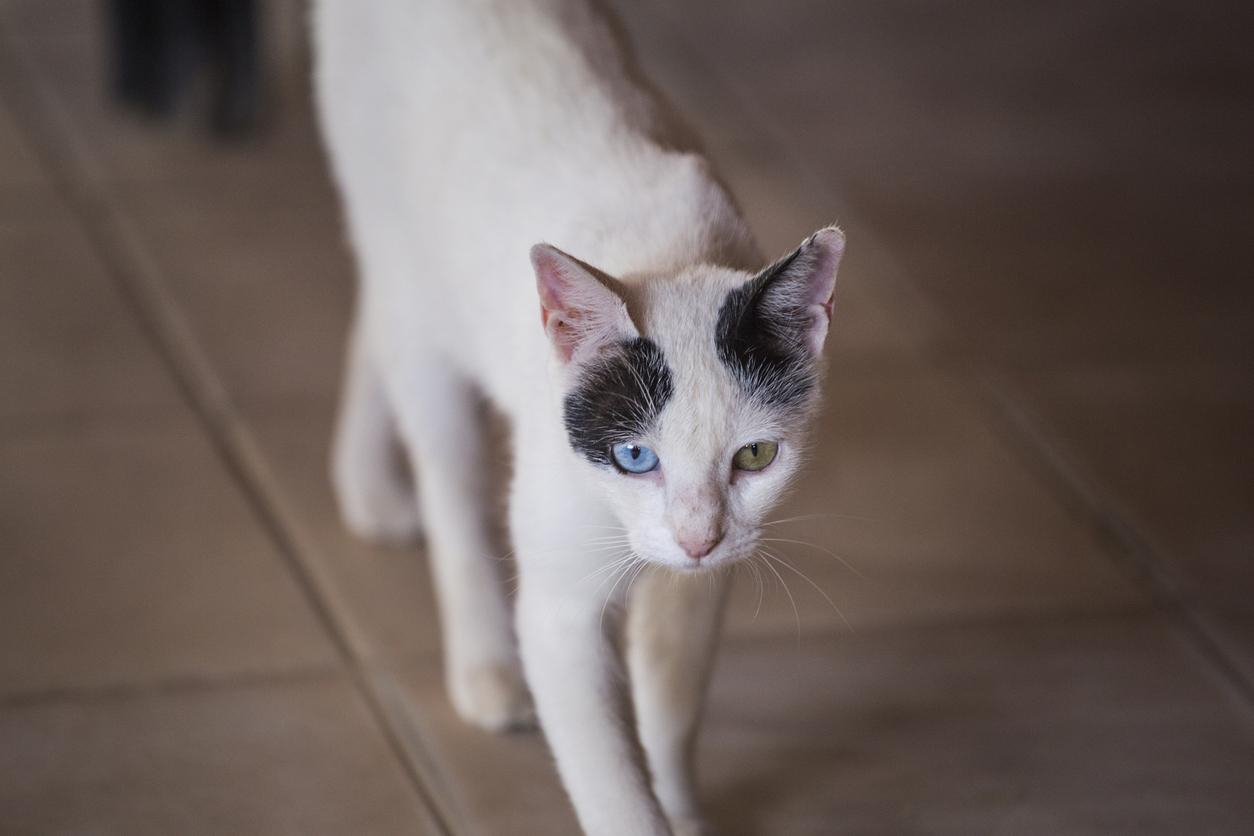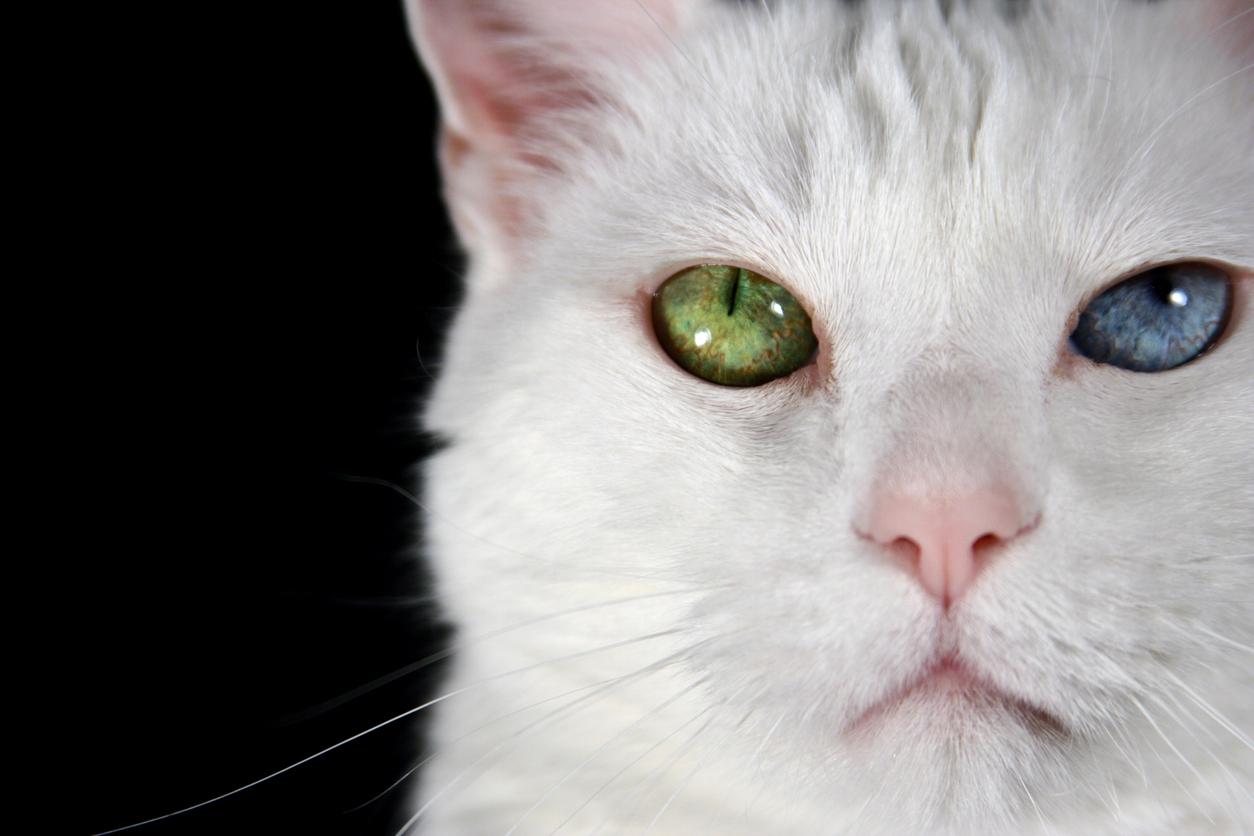Why Do Some Cats Have Different Colored Eyes?



See files for Cats
The stunning beauty of the feline species is even further accentuated by different colored eyes. This is known as heterochromia and cat. What causes these rare creatures to be odd eyed cats? This AnimalWised article strives to find out why do some cats have different colored eyes? Cats with heterochromia experience no adverse effects with vision, but their colorful eyes do leave people wondering why it is so. In case you are one of these, join us in an incisive piece on why cats with different colored eyes exist.
Heterochromia: A condition for all species
Heterochromia is not limited to cats. It can be found in any species. Humans or some dog breeds such as Huskies are prone to it too.
There are two kinds of heterochromia for cats:
- Complete heterochromia: Complete heterochromia is a situation where the cat has two independently colored eyes, for example, one brown eye, and one blue eye.
- Sectoral heterochromia: This occurs when a single eye's iris is split between two colors like green and blue. Both conditions are associated with the term heterochromia irides. This means Greek for “differently shaded irises.”
What causes heterochromia?
What causes this trait to manifest itself? It all starts with the genes of the cat, which are linked to pigmentation. Kittens are always born with blue eyes. The true shade of a cat's eyes are only visible within 7 to 12 weeks– this is when the pigment begins to shift to the irises. Eye color is the result of the movement of melanin, a special type of pigment into the iris. Blue eyes are the result of the absence of melanin. Genes leading to all-white or dual colored cats are the reasons behind the cases of odd eyed cat.
Odd-eyed coloring occurs when the epistatic or major white gene or white spotting genes obstructs melanin granules from accessing an eye during development. The condition rarely occurs in cats without dominant white or white spotting genes. The color of the odd eye undergoes a change from blue to green to even yellow till it's reached its adult shade, whilst the other eye usually remains blue throughout the cat's life. As the kitten matures, genetic differences cause the melanin to reach only one eye. That is how complete heterochromia results. When varying concentrations of melanin spread through a single iris, sectoral heterochromia is the consequence. As melanin is directly responsible for the color of the eye, it results in single eyes of varying colors.
Certain breeds are genetically more prone to it such as those mentioned in the following list:
- Turkish Angora
- Turkish van
- Sphinx
- Persian
- Khao Manee
- Oriental Shorthair
- Japanese Bobtail
In fact, the government of Turkey has even worked to preserve the different colored -eyed Angora. The brand ambassador of the FIBA World Tournament in 2010 in Turkey was an odd-eyed cat Bascat!

Can odd eyed cats have problems due to their condition?
If your odd eyed cat's multicolored eyes develop after he/she has matured, it's time to see the vet. Once fully matured, changes in color result from iron deposits, uveitis, inflammation or blood in the cat's eye. Though heterochromia is not a symptomatic condition, it can cause genetic change, disease or injury. Around 60 to 70 percent of odd-eyed cats are totally fine though, as per expert estimates. Genetic heterochromia is possible in any cat.
If your cat's eye turns white, do not mistake it with heterochromia, this is a definite symptom of glaucoma in cats.
Is the color of fur related to odd eyed cats?
Different genes control fur and eye color, so melanocytes associated with fur may be more or less active than those in the eyes. The exception to this rule is the white cat. Epistatic white gene is dominant and masking other colors makes white cats more likely to possess blue eyes than random-bred cats of other shades.

Folklore about odd eyed cats
Now that you know more about odd eyed cats and heterochromia, AnimalWised would like to teach you about some interesting trivia and fun facts:
- Prophet Mohammad's pet Angora cat was an odd eyed cat with heterochromia.
- A common misconception is that odd-eyed cats are deaf in a single ear. However, the truth is that around 70 percent of different color-eyed cats have normal hearing. White cats with blue eyes show more likelihood of deafness, though this does not mean they are all deaf, but they may have a hearing impairment.
- Another fact is that the more melanocytes there are in the cat's eyes, the darker the cat's eyes will be. This means that cats with blue eyes have no melanin.
- The darkest shade of a cat's eyes is pure copper.
- Kittens are born blue-eyed because their melanocytes have not begun working yet. Melanocytes function as the true shade of the eyes emerges. A kitten's true eye color is visible at the age of 4 months.
- Odd eyed cats are highly praised by many cat lovers and are searched for widely to purchase. However, at AnimalWised we are not in favor of breeding or the sale of pets, as there are already many cats and kittens around the world that need a loving home.
If you want to read similar articles to Why Do Some Cats Have Different Colored Eyes?, we recommend you visit our Facts about the animal kingdom category.
Tips
- If you notice your cat is slowly changing the color of its eye when fully grown, it's highly important you take it to a vet.






 Are odd eyed cats very costly?? I rescued cosmo a 2mth old indi I suppose he is odd eyed!
Are odd eyed cats very costly?? I rescued cosmo a 2mth old indi I suppose he is odd eyed!



